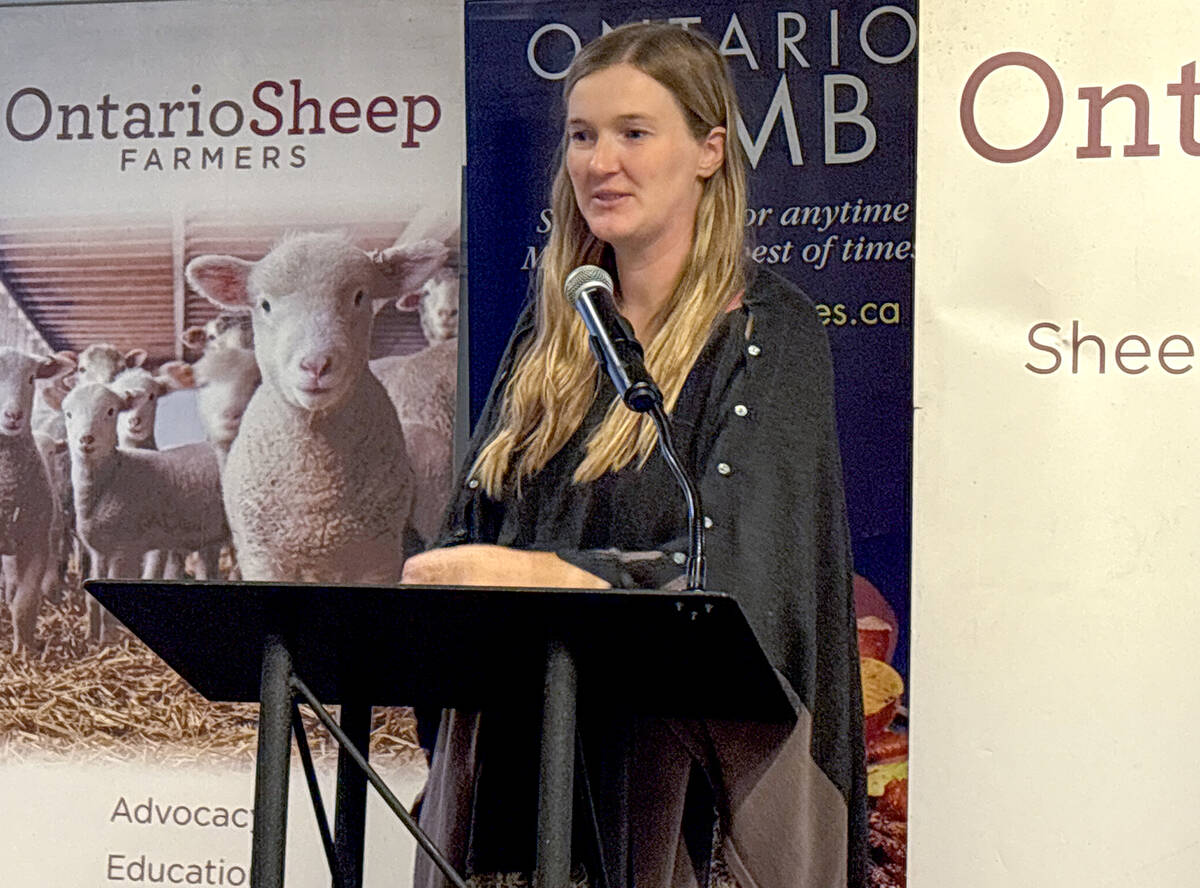Glacier FarmMedia – Federal Agriculture and Agri-food Minister Marie-Claude Bibeau says an agricultural labour strategy will be released in phases as Ottawa tackles issues around temporary foreign and domestic workers.
Her new mandate letter from Prime Minister Justin Trudeau said developing a strategy should be her immediate priority. Bibeau said in an interview that work has been underway for a while but the strategy is complex and was delayed by the COVID-19 pandemic.
Why it matters: Labour shortages in agriculture have plagued the industry for years and the federal agriculture minister has been asked by the prime minister to tackle the issue in 2022.
Read Also

Footflats Farm recognized with Ontario Sheep Farmers’ DLF Pasture Award
Gayla Bonham-Carter and Scott Bade, of Footflats Farm, win the Ontario Sheep Farmers’ 2025 DLF Ontario Pasture Award for their pasture management and strategies to maximize production per acre.
Bibeau said temporary foreign workers aren’t the only solution to labour shortages. The government also looks for ways to recognize the value of agricultural work and attract more domestic workers. She said research, innovation and automation will all be part of the solution, as is increasing investment in youth programs to teach more about the sector.
“Yes, we need more people on the farm and in food processing facilities but agriculture is much larger than that and we need capacities in different (areas),” Bibeau said. “We have to make a full 360-degree analysis to see how we can face this labour shortage.”
Reform of the temporary foreign worker program is a key first step. She said she expects the first plank in the strategy will be a way to recognize trusted employers so red tape is reduced for them while cracking down on the bad actors.
“We definitely want our workers to be treated with dignity,” the minister said.
Consultations are ongoing on housing and mobility of workers, she said, and helping to make it easier for foreign workers to set up permanent residence in Canada.
Conservative agriculture critic John Barlow said the labour strategy is a positive element in a mandate letter he described as “fluff.”
He said business risk management improvement has been in Bibeau’s mandate letter from the beginning and is still not complete. Barlow said he would have liked to see more focus on trade, supply chain issues and transportation pinch points.
The letter directs her to ban the export of live horses for slaughter and Barlow said he believes there are larger issues than that. He also said the letters came out two months after the election, indicating a lack of focus by the government.
“It’s four pages long, 80 per cent of it is Liberal value virtue signaling and then there’s a half a dozen bullet points about what they want her to focus on,” he said. “What is your vision? What is the direction you are actually seeing Canadian agriculture go?”
Barlow added he is concerned the government is following the European farm to fork strategy that focuses on sustainability.
Bibeau said farmers must be both sustainable and competitive. She pointed to the government’s move to triple money available in the clean tech fund for farms as evidence the government has its priorities right.
The mandate letter also says she must “prioritize measures to support efficiency and climate-resiliency in the agriculture and food sector to strengthen food security and significantly cut agriculture’s environmental footprint.” She is to work closely with provinces, territories and producers to support sustainable growth in the sector.
“Furthermore, you will strengthen Canada’s food system, with particular emphasis on developing a National School Food Policy,” the letter said.
Other measures include determining full and fair compensation for supply-managed sectors affected by the Canada-United States-Mexico trade agreement within the first year of the government’s mandate, continuing work to prevent African swine fever, creating a No-Waste Food Fund, continuing toward modernizing the Canada Grain Act and helping the environment minister establish a Canada Water Agency.
This article was originally published at The Western Producer.














